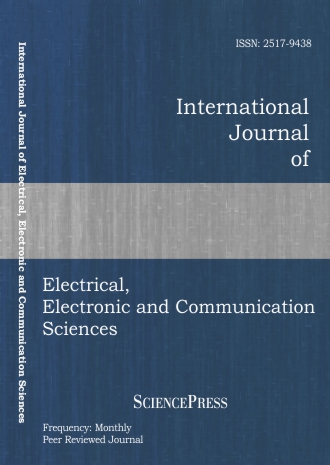
Scholarly
Volume:2, Issue: 12, 2008 Page No: 2781 - 2785
International Journal of Electrical, Electronic and Communication Sciences
ISSN: 2517-9438
1166 Downloads
Evaluation of the ANN Based Nonlinear System Models in the MSE and CRLB Senses
The System Identification problem looks for a suitably parameterized model, representing a given process. The parameters of the model are adjusted to optimize a performance function based on error between the given process output and identified process output. The linear system identification field is well established with many classical approaches whereas most of those methods cannot be applied for nonlinear systems. The problem becomes tougher if the system is completely unknown with only the output time series is available. It has been reported that the capability of Artificial Neural Network to approximate all linear and nonlinear input-output maps makes it predominantly suitable for the identification of nonlinear systems, where only the output time series is available. [1][2][4][5]. The work reported here is an attempt to implement few of the well known algorithms in the context of modeling of nonlinear systems, and to make a performance comparison to establish the relative merits and demerits.
References:
[1] N.K Sinha and B Kuszta, Modeling and Identification of Dynamic